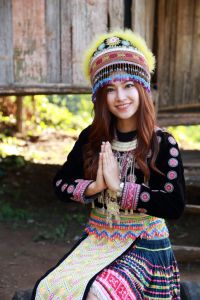 The Hmong population in Wisconsin is over 49,000, and climbing. The community has seen steady growth in the Midwest and elsewhere in the United States. As with many minority cultures, people have often struggled to hold onto their rituals and traditions in a largely secular environment. For example, until now, people in Wisconsin who celebrate Hmong cultural traditions had to plan two ceremonies if they were considering getting married one that followed Hmong ritual, and one that was honored as legal in the state. That will change, however, if a proposed state law takes effect that would allow Wisconsin to grant legal status to Hmong cultural weddings. The bill has been introduced by state Rep. Jonathan Brostoff, D-Milwaukee, who is married to a Hmong woman.
The Hmong population in Wisconsin is over 49,000, and climbing. The community has seen steady growth in the Midwest and elsewhere in the United States. As with many minority cultures, people have often struggled to hold onto their rituals and traditions in a largely secular environment. For example, until now, people in Wisconsin who celebrate Hmong cultural traditions had to plan two ceremonies if they were considering getting married one that followed Hmong ritual, and one that was honored as legal in the state. That will change, however, if a proposed state law takes effect that would allow Wisconsin to grant legal status to Hmong cultural weddings. The bill has been introduced by state Rep. Jonathan Brostoff, D-Milwaukee, who is married to a Hmong woman.
Invalid Under the Law
Marriage coordinators in the Hmong culture are known as Mejkoob. Currently, the wedding ceremonies they perform are not recognized as legal unions in Wisconsin. The proposal would acknowledge the Mejkoob as official and legal officiants, granting them the power of certification in the state. Many Hmong couples who live in Wisconsin have chosen to celebrate their marriage with a Hmong ceremony, even though the marriage has no legal status. Chue Xiong sits on the school board in Eau Claire. He and his partner, Coua Lor, wed among family and friends in a Hmong ceremony in 2013. Xiong said the expense of following up with a Western ceremony was more than he and Lor wanted to take on.
Restricted Rights and Benefits
Non-legal status can pose complications down the road for Hmong couples. If the marriage is not recognized under state law, a partner may have difficulty visiting the other person in the hospital or participating in his or her medical care. There would also be difficulties collecting government benefits such as Social Security or Veterans' Compensation. Assets acquired during a marriage that are sanctioned culturally, but not legally, would not be considered marital property. The bill looks to patch the holes in the system. In addition to granting certification rights to the Mejkoob, it would outline a training program that would verse the Mejkoob in Wisconsin marriage law. This training may reduce the number of underage people entering into Hmong marriages.
Cultural Differences
Wisconsin law, along with many other states' statutes, is designed to provide some protection for minors. The law allows anyone 18 years of age or older access to a marriage license, and will grant a license to 16- and 17-year-old people with written consent from a guardian. Executive director of the Eau Claire Area Hmong Mutual Assistance Association, Pa Thao, says it is not unheard of for 14- or 15-year-olds in the Hmong culture to get married. That can be a problem, according to Thao, who believes that domestic violence can be more common in young teenage marriages than in unions between couples who are more mature. Hmong women may have it particularly tough when a cultural marriage ends in divorce. Women face:
- Loss of status in the culture
- Difficulties in claiming marital property
- Disrespectful behavior
Bridging the Gaps
Some members of the Hmong cultural community believe that the Mejkoob are unlikely to embrace change. Wisconsin is home to 18 Hmong clans, all with strong ties to the old ways. People such as Xiong, however, believe that a bridge between cultures would be of benefit to everyone. People who tend to be more vulnerable within the culture may be better protected with some state oversight. At the same time, ancient Hmong wedding traditions can gain legal status, allowing couples to celebrate their unions in a single ceremony. Mao Khang, a vice president on the Hmong 18 Council of Wisconsin, said she thought the bill is a good way to harmonize two very different societies.
Add Your Comment